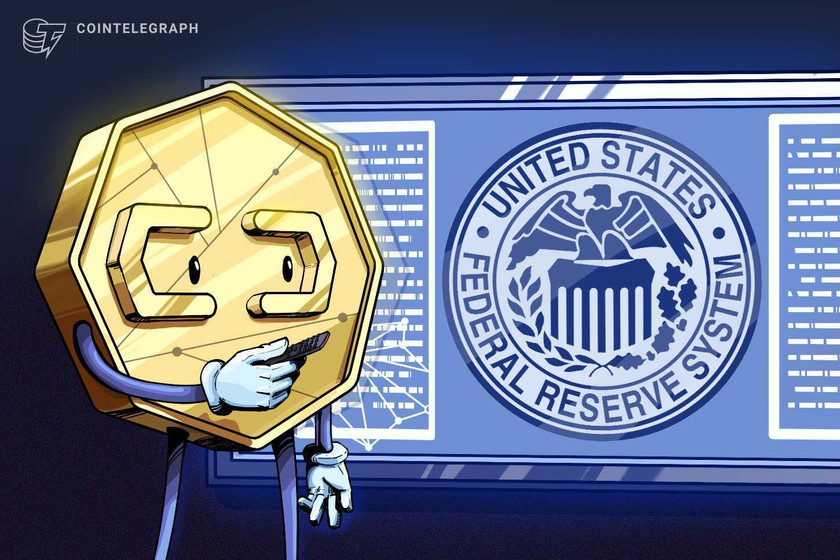US Fed to create new crypto team amid concerns about unregulated stablecoins


The Fed’s vice chair for supervision said that the central bank does not want to curb innovation but ensure that regulations protect households and the financial system.
The United States Federal Reserve is set to create a “specialized team of experts” to keep up with developments in the cryptocurrency industry, according to a Fed official, amid concerns from the central bank about “unregulated” stablecoins.
Speaking at the Peterson Institute for International Economics in Washington on March 9, Vice Chair for Supervision Michael Barr admitted that crypto could have a “transformative effect” on the financial system but added that “the benefits of innovation can only be realized if appropriate guardrails are in place.”
According to Barr, the new crypto team will help the Federal Reserve “learn from new developments and make sure we’re up to date on innovation in this sector.” He added:
“Innovation always comes quickly, but it takes time for consumers to become aware that they could both gain and lose money on new financial products.”
Meanwhile, Barr noted that regulation needs to be a “deliberative process” to ensure a balance is reached between over-regulation that “will stifle innovation” and under-regulation that “will allow for substantial harm to households and the financial system”
Related: Fed signals a sharp rate hike in March due to inflation — Here’s how Bitcoin traders can prepare
One subsect of crypto that Barr highlighted as a point of concern was stablecoins.
He said that the assets backing many stablecoins in circulation are illiquid, meaning that it can be difficult to liquidate them for cash when needed, arguing:
“This mismatch in value and liquidity is the recipe for a classic bank run.”
He believes that unless regulated by the Fed, any widespread adoption of stablecoins could put households, businesses and the broader economy at risk.
Caitlin Long, the CEO of Custodia Bank — which has consistently been rejected from joining the Federal Reserve System — pointed out the irony in the comments from Barr given her belief that Silvergate Bank collapsed due to liquidity issues arising from a bank run.
UM, WASN’T THE FED #Silvergate‘s REGULATOR?♀️
“The banks we regulate, in contrast, are well protected from bank runs thru a robust array of supervisory requirements.”–Fed Vice Chair Supervision Michael Barr, speaking this morning(!)
h/t @ByKyleCampbellhttps://t.co/7UsHDKfiaC— Caitlin Long ⚡️ (@CaitlinLong_) March 9, 2023
Long also pointed to the current issues facing Silicon Valley Bank, whose shares plummeted after a March 8 financial update disclosed that it sold $21 billion worth of its holdings at a $1.8 billion loss, prompting fears that it was forced to sell to free up capital.
FRIENDLY REMINDER that, right as the panic was happening in Silicon Valley, the Fed’s Vice Chair for Supervision Barr said in a speech: “The banks we regulate, in contrast, are well protected from bank runs thru a robust array of supervisory requirements.”https://t.co/FpPl2Qlk7x
— Caitlin Long ⚡️ (@CaitlinLong_) March 10, 2023





